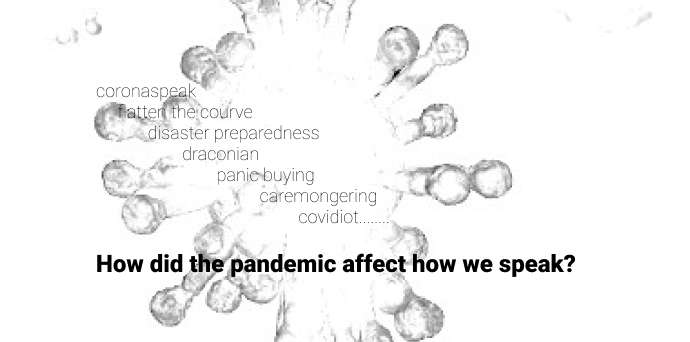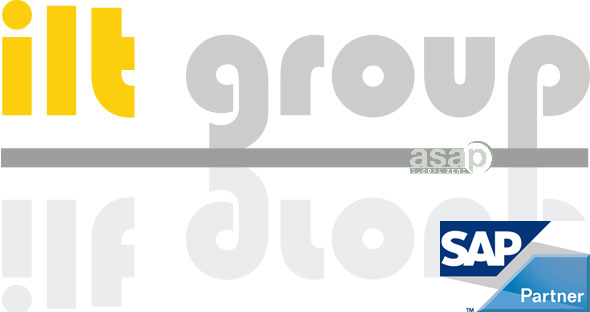Posted by Ginni ● 04-Feb-2021 15:55:18
Did the pandemic have an effect on everyday language?
COVID-19 related new words and idioms

In April 2020, the Oxford English Dictionary updated its records, and noted an increase in Coronavirus terminologies and language, later calling it an ‘emerging pandemic vocabulary’.
Tony Thorne, a Language Consultant in the Modern Language Centre at King’s College London, has published several articles also looking at what he calls “Coronaspeak”, which he states can help the public ‘to make sense of their new circumstances’.
Like working remotely and lockdowns, our language has had to quickly adapt to this global crisis, with ‘”ordinary” people… [being] … at the mercy of, and must come to terms with, new language’, some of it new and unfamiliar, some older with their meanings changed to fit this new situation.
One of the first changes noted in the Coronavirus crisis was the “medicalisation” of everyday language. Words like ‘hydroxychloroquine’ and ‘dexamethasone’, chemicals thought to help treat the virus, saw an increase in usage, as well as medical terms like ‘pathogens’, ‘spike proteins’ and ‘glycoproteins’, among many others. As Thorne has said, this increase in medical and scientific discourse helps the public to ‘make sense of the unfolding crisis’, however he did also warn that it could quickly become overwhelming if people can’t keep up with the speed in which these linguistic changes are happening.
Another thing that Thorne mentions in his April 2020 article is China’s “Emergency Linguistics”, a ‘research specialisation devoted to language and communication aspects of disaster preparedness’. Professor Li Yuming explains that the language and dialect barrier between doctors and patients in Wuhan led to the assistance team of Qilu Hospital of Shandong University urgently compiling The Guidebook of Wuhan Dialect for Medical Assistance Teams, Audio Materials of Wuhan Dialect for Medical Assistance Teams, and The Handbook of Doctor-Patient Communication within 48 hours of the response team arriving in the province. Using this case study, Thorne argues that linguists and sociolinguists are an essential part of the “fight against COVID-19” to help bridge the communication barriers between doctors and patients.
Another element of Coronavirus language that has been recognised has been the use of war metaphors, much like the phrase “the fight against COVID-19” mentioned above. Ines Olza, a linguist at the University of Navarra in Spain, believes that a “sustained use of that metaphor and abuse of it… might generate anxiety and might distort things about the pandemic’ and exacerbate an already scared public. We can see this fearmongering especially in the media and how they’ve been reporting on the crisis. Looking at the BBC News homepage, the phrases ‘come down hard’ and ‘bring this virus to heel’ are the first things to be read, even a year later in 2021. In the spring and summer of 2020, this discourse was everywhere, with the increasing number of cases on everyone’s mind and TV and radio stations. On the other hand, terms like ‘draconian’ were used to describe the measures taken in March to handle the ever-growing crisis. Both of these extremes seemed to justify the public’s reactions of panic buying and dismissals, exacerbating an already difficult situation.
However, over the course of the summer and autumn of 2020, terms like ‘flatten the curve’ and Britain’s slogan ‘stay at home, help the NHS, save lives’ became catchphrases of COVID-19, invoking a sense of collective and individual action which helped turn the fear and anxiety of the public into positive actions. Further, the term ‘caremongering’ has sprung up in Canada and India, with a self-explanatory goal; to make the best of a horrible situation. Positive discourse like this is surprisingly crucial in how people react to COVID-19, especially in regard to keeping themselves and others safe.
Further positive linguistic changes noted have been ‘lockdown baking’ and humorous “shorthand” terms. Robert Lawson has explained that ‘if you can talk about it, then it can help people cope and get a handle on a really difficult situation’. Words like ‘covidiot’ and ‘blursday’ bring humour into a stressful situation, and ‘if you can laugh at them, it makes things more manageable almost, and just helps with people’s psychological health’.
Just as quickly as this virus has spread throughout the world, the internet has allowed us to spread both positivity and negativity. Over the course of this crisis, we’ve seen people come together to support each other, we’ve seen the environment benefit massively from humanity being stuck indoors, and we’ve seen the very best and worst of people. From entire streets singing together from their balconies to anti-maskers, language and social media has played a massive part in the COVID-19 crisis, and in how we, the ordinary people, have managed to keep vital connections to our loved ones and people experiencing the same things as us: we are reminded that we are not alone in facing this crisis.
Useful resources:
|
Bilingual Covid-19 related terminology DE-IT, Bundeskanzlei, Schweiz |
Google: Terminologie%20COVID-19.pdf |
| Treccani, Le parole del Coronavirus | https://www.treccani.it/magazine/parolevalgono/Le_parole_del_Coronavirus/index.html |
| Yale Medicine, Covid Vocabulary | https://www.yalemedicine.org/news/covid-19-glossary |
| Covid-19 Outbreak Glossary, KFF | https://www.kff.org/glossary/covid-19-outbreak-glossary/ |
Multilingual EU terminology on Covid,
|
https://data.europa.eu/euodp/en/data/dataset/covid-19-multilingual-terminology-on-iate |
References:
https://public.oed.com/blog/july-2020-update-scientific-terminology-of-covid-19/
https://language-and-innovation.com/2020/03/
https://www.kcl.ac.uk/news/coronaspeak-the-language-of-covid-19-goes-viral
https://www.languageonthemove.com/language-lessons-of-covid-19-and-linguistic-disaster-preparednesshttps://www.bbc.com/worklife/article/20200522-why-weve-created-new-language-for-coronavirus
https://www.bbc.co.uk/news/health-55895019
Topics: Terminology, neulogism, covid-19
